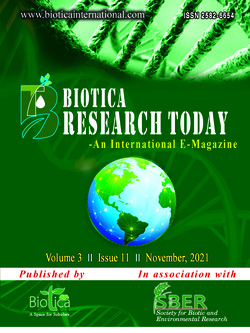
Fish Glue: A By-product of Fish Waste Material
Vanvi Mansing*
Dept. of Fish Processing Technology, College of Fisheries Science, Kamdhenu University, Veraval, Gujarat (362 275), India
B.G. Chudasama
Dept. of Fish Processing Technology, College of Fisheries Science, Kamdhenu University, Veraval, Gujarat (362 275), India
DOI: NIL
Keywords: Fish, Fish waste, Glue, Waste material
Abstract
There has been an increasing interest in fish by-products during the past years. Today it is seen as a potential resource instead of a waste. Much research is being done in order to explore the possible uses of different by-products. Fish glue is impure gelatin (collagen) prepared from fish heads, bones and skins. Fish glue is known for value added product from fish processing by-products as the adhesive agent. Fish wastes resulting from industrial fish processing operations often consists of offal, flesh, skin, bone, entrails, shell etc. If required, fish skin can be preserved by salting and drying before processing into glue; however, fish head should be processed fresh. Collagen is the main component of fish glue. It is a highly viscous liquid at room temperature. Fish glue purity is various depending of the manufacturing process. Fish glue used for furniture, box making etc.
Downloads
not found
Reference
Brody, J., 1965. Fishery by products technology. The AVI publishing company inc., Westport, Connecticut, p. 14-19.
FAO, 2015. Voluntary Guidelines for Securing Sustainable Small-Scale Fisheries in the Context of Food Security and Poverty Eradication. Rome, p. 30. Available at: www.fao.org/3/a-i4356en.pdf.
Firth, F.E., 1969. The Encyclopedia of Marine Resources. Van Nostrand Reinhold Company, New York, pp. 113-141.
Petukhova, T., 2000. A History of Fish Glue as an Artist’s Material: Applications. In: Paper and Parchment Artifacts, The Book and paper Group, Vol. 19, pp. 111-114, ills.
